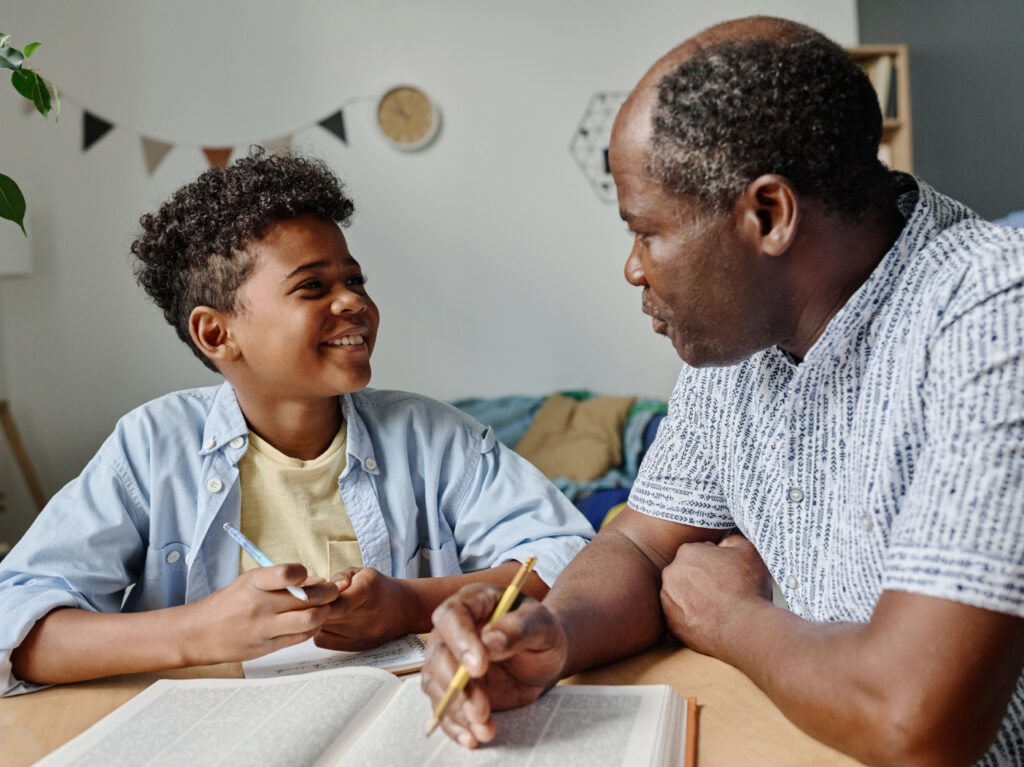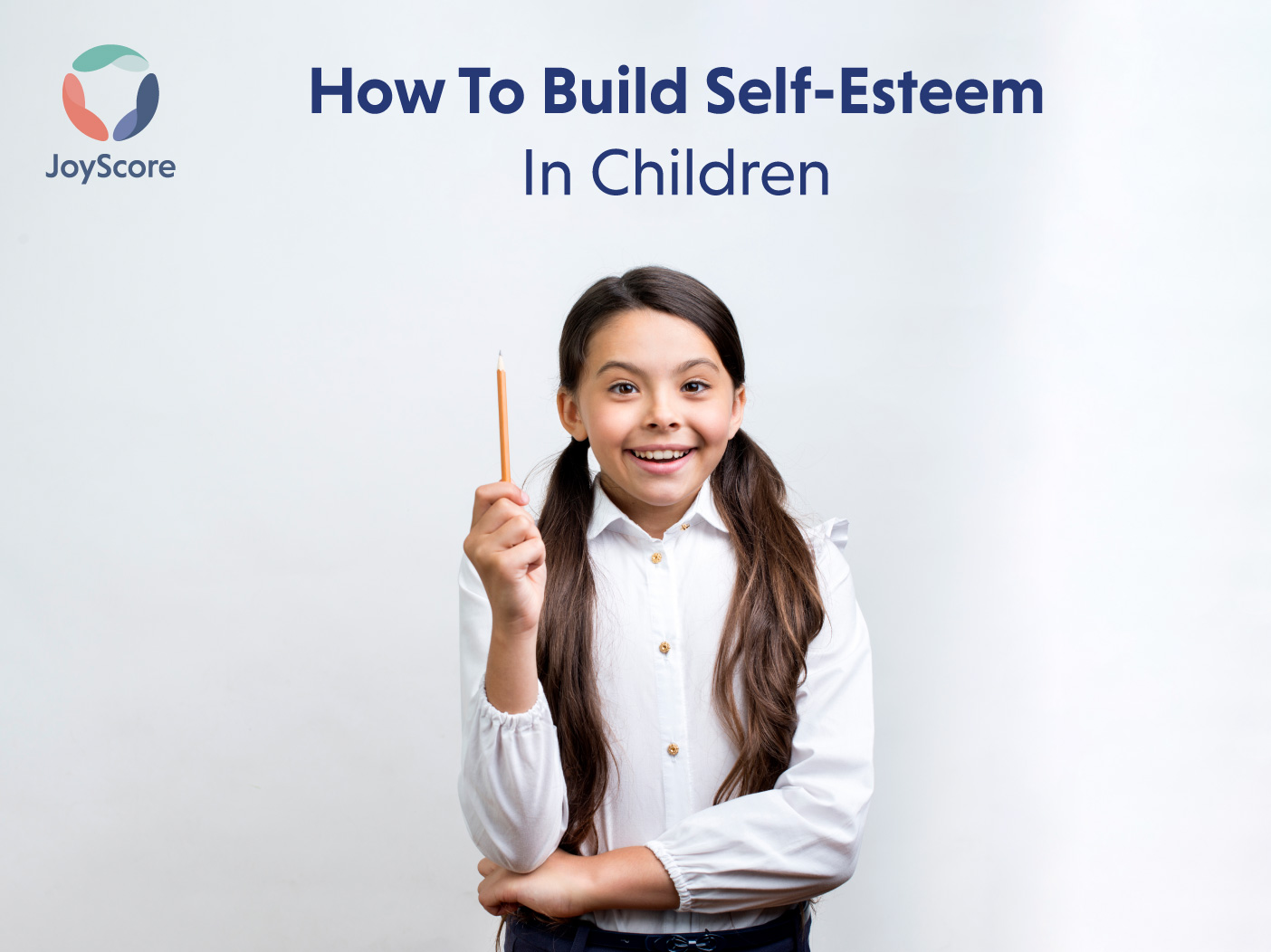How to build self-esteem in children
Children are naturally curious and eager learners. They love to explore, ask questions, and experiment with new ideas. When a child is raised in an environment where success is measured by extrinsic factors like good grades or achievements rather than intrinsic ones like talents and interests. It can be difficult for children to develop self-esteem.
Self-esteem is a measurement of how much you enjoy being yourself. If a child’s self-worth is low, it can have a lasting impact on their future. Fortunately, building self-esteem isn’t difficult as long as you understand how to build self-esteem in children. But before we realize how to build self-esteem in children, let’s talk about why self-esteem is essential.
Why is Self-Esteem Important?
Human beings are social creatures, and self-esteem is one of the most critical foundations for relationships. Self-esteem is about feeling good about yourself, your appearance, your abilities, and your relationships.
Self-esteem is an essential part of healthy childhood development. High self-esteem makes you feel worthy and confident in your abilities. You may have some insecurities along the way, but you aren’t afraid to ask for help when needed.
People with high self-esteem are likely to reach out to others and feel a sense of belonging. Children with high self-esteem are capable of more creativity and are more likely to participate actively. They are also less likely to get mood disorders as adults.
It’s essential to support children’s self-esteem because it helps them to learn to value themselves, go after their dreams and goals, and respect others.
Kids with high self-esteem have a greater chance of becoming successful in life. They are more likely to achieve higher education levels and have healthy and stable relationships. It also decreases their chance of engaging in risky behaviors like drug and alcohol abuse.
Self-esteem is essential for helping children deal with challenges and disappointments. It enables them to bounce back more quickly from life’s difficulties. Kids who have low self-esteem are more likely to let setbacks impact them. They are more likely to “give up” on challenges.
What Does High self-esteem look like?
You feel secure and worthwhile when you are valued. You will be positive in relationships with others and feel confident about your abilities.
You will be more open to receiving and accepting feedback. You may also be open to learning, which can help you master new skills.
Your healthy self-esteem enables you to be assertive and optimistic about your future and less likely to be overly critical of yourself and others. They can better withstand stress and setbacks. Knowing that you are a worthwhile person isn’t about being a show-off. It’s about accepting yourself as you are — with all of your faults.
Here are seven ways to boost your children’s or students’ confidence and self-esteem. Before you know “how to build self-esteem in children,” download the JoyScore App and find out where you are on this life journey to happiness.
Ways to Build Self-Esteem in Children:
Expressing love and appreciation to your child
- Celebrate your child’s achievements, whether the achievement is in sports, art, or academics, and let your child know you’re proud of them. Don’t criticize or put your child down — instead, encourage them.
- Take an interest in your child’s activities. Show that you care about what your child does. Ask questions about their hobbies and interests, and show an interest in them.
- Showing patience and understanding when your child makes a mistake is an excellent way to build self-esteem. Parents or teachers must acknowledge that they love and care for their children or students, even when they make mistakes or poor decisions.
Be a good role model.
- Parenting is not just protecting your child but also giving them the right judgment, power, sensibility, and empathy, so your child’s uneasiness doesn’t start affecting others.
- Certain parenting behaviors and character traits, such as anger and fear, are passed down from generation to generation. When you have a child, you have the opportunity to become the parent you want. If you have low self-confidence, due to how you were raised, take action to heal yourself and break the family routine.
- Confront the problems in your past that prevent you from being a present parent. This will make you a good parent and role model for your child.
Encouraging them to take decisions by themselves
- Allow your child to choose their toys. It doesn’t mean saying YES to everything they want but let them speak about their likes and dislikes. Allow them to try new things, even if they might seem scary. This allows your child to develop confidence and a sense of self by having a voice about gaining control over her toys.
- When young children, like toddlers, assert themselves, they learn that decisions have consequences, which helps them develop confidence and a sense of self.
- Allow your child to explore their environment, but be ready to assist them if necessary.
Give Your Child Responsibilities

- Giving children work is one of the ways children acquire self-assurance and internalize values. One way families can do this is by teaching children how to maintain the house and clean up after themselves. This helps children feel more valuable and acquire desirable behavioral and teaching abilities.
- Giving children chores around the house teaches them to be more responsible. This will result in a sense of responsibility toward society, too.
- When children help around the house, parents are relieved of some of the busy work, and children feel they are essential and contributing to a cause. Children feel helpful and needed, and the energy they spend on the home becomes an investment in the value system of that home.
Ask them for their advice or opinion.
- Studies show we usually stop opening up to people when our opinions are not valued. Showing that you love your child’s ideas and opinions by asking them for advice on age-appropriate situations is a great way to build their confidence.
- Help them feel more comfortable by asking them what they would do in a hypothetical situation. Permit them to share their thoughts and praise them when they take the time to share their input. This will make children more confident as they learn to express their opinions.
Don’t compare them to others.
- Give your child credit for their strengths and accomplishments. Talk about their unique personality or interests. Focus on the positives.
- Keep the focus on your child. Strive not to compare siblings. This helps kids’ self-esteem and encourages them to see their unique gifts and strengths.
- Kids tend to compare themselves to their siblings, classmates, or other family members. While these comparisons are usual and expected, celebrate your child’s individual gifts and character traits.
Hear them out

- When you want to make your child feel loved and valued, spend quality time with them. Eliminate distractions. Put away electronics. Stop doing work. Pay attention to their interests.
- No one expects children to be perfect; in reality, they don’t need to be. Kids can learn a lot by making mistakes, asking questions, and experiencing life firsthand. Over time, they may realize that specific errors are helpful and necessary for growth. What matters most is how children view themselves and what they do with that knowledge.
- By encouraging your child to be proud of their unique talents, interests, and abilities, you can encourage them to build self-esteem and achieve great things as they grow up.
Self-esteem is a tricky topic for parents to navigate, but by using these tips, you can improve your child’s self-esteem. With a strong foundation in self-esteem, children can make better decisions as they move into adulthood, socially and academically.
Building self-esteem in children requires patience, understanding, and effort. It takes effort to praise your child when they’ve done something well. It takes effort to ignore their mistakes and focus on the positive aspects of their life.
You can’t change your child’s genetics. You can’t change the negative experiences they’ve had. But you can help to empower them with good advice. You can set a good example for them, and you can show them that you appreciate them for who they are.
If a child has low self-esteem, it may have a lasting impact on their future. It can affect their career choices and their relationships in life. With low self-esteem, children don’t enjoy being themselves. They may wish they were someone else. They may feel undeserving of success in life. Use our advice on “How to Build Self-Esteem in Children” and give your child a better future. We can help you to know more about mental health and life. Download the JoyScore App and live a happy life!
Download the Joyscore app Now!
Download on the Appstore
Get it on Google Play



